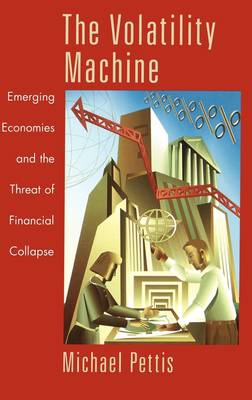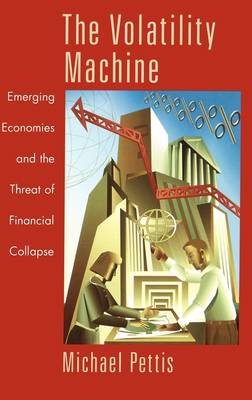
- Retrait gratuit dans votre magasin Club
- 7.000.000 titres dans notre catalogue
- Payer en toute sécurité
- Toujours un magasin près de chez vous
- Retrait gratuit dans votre magasin Club
- 7.000.000 titres dans notre catalogue
- Payer en toute sécurité
- Toujours un magasin près de chez vous
The Volatility Machine
Emerging Economics and the Threat of Financial Collapse
Michael Pettis
Livre relié | Anglais
66,95 €
+ 133 points
Description
This book presents a radically different argument for what has caused, and likely will continue to cause, the collapse of emerging market economies. Pettis combines the insights of economic history, economic theory, and finance theory into a comprehensive model for understanding sovereign liability management and the causes of financial crises. He examines recent financial crises in emerging market countries along with the history of international lending since the 1820s to argue that the process of international lending is driven primarily by external events and not by local politics and/or economic policies. He draws out the corporate finance implications of this approach to argue that most of the current analyses of the recent financial crises suffered by Latin America, Asia, and Russia have largely missed the point. He then develops a sovereign finance model, analogous to corporate finance, to understand the capital structure needs of emerging market countries. Using this model, he finally puts into perspective the recent crises, a new sovereign liability management theory, the implications of the model for sovereign debt restructurings, and the new financial architecture. Bridging the gap between finance specialists and traders, on the one hand, and economists and policy-makers on the other, The Volatility Machine is critical reading for anyone interested in where the international economy is going over the next several years.
Spécifications
Parties prenantes
- Auteur(s) :
- Editeur:
Contenu
- Nombre de pages :
- 272
- Langue:
- Anglais
Caractéristiques
- EAN:
- 9780195143300
- Date de parution :
- 17-05-01
- Format:
- Livre relié
- Format numérique:
- Genaaid
- Dimensions :
- 163 mm x 240 mm
- Poids :
- 553 g







